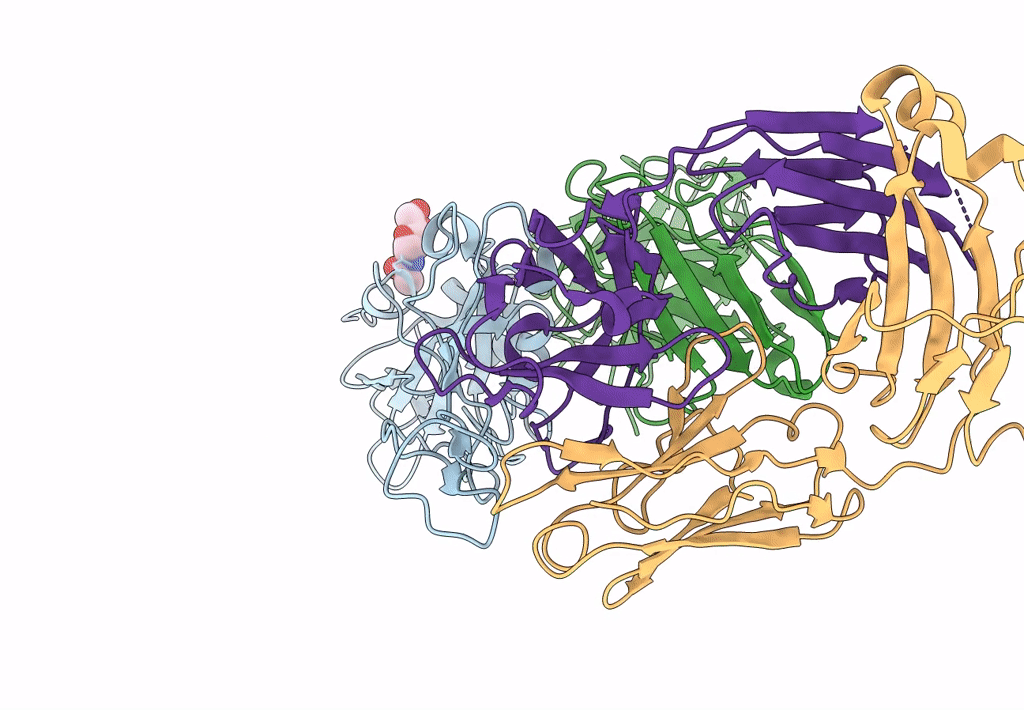
Deposition Date
2022-06-20
Release Date
2023-07-19
Last Version Date
2025-04-02
Entry Detail
PDB ID:
7Y6K
Keywords:
Title:
Cryo-EM structure of SARS-CoV-2 receptor binding domain in complex with K202.B bispecific antibody
Biological Source:
Source Organism(s):
Severe acute respiratory syndrome coronavirus 2 (Taxon ID: 2697049)
Homo sapiens (Taxon ID: 9606)
Homo sapiens (Taxon ID: 9606)
Expression System(s):
Method Details:
Experimental Method:
Resolution:
3.34 Å
Aggregation State:
PARTICLE
Reconstruction Method:
SINGLE PARTICLE


